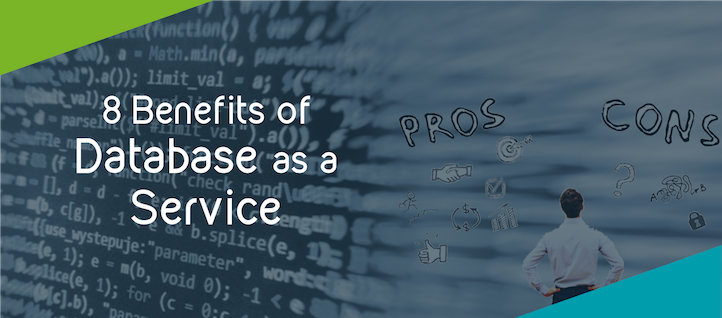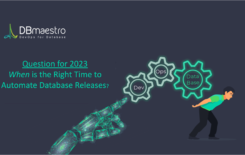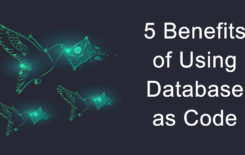Database as a Service, or DBaaS, is a Cloud-based service that offers users a flexible, scalable, and on-demand platform. DBaaS focuses on self-service, easy management, and performance and usage tracking.
The benefits of DBaaS set it apart from other Cloud services as it delivers database functionality on the same scale as a relational database management system.
The Benefits of Database as a Service
Database as a Service (DBaaS) provides enterprises with a database solution that is simple to use and easy to update. As the database takes a more central role within data heavy, application-focused IT departments, DBaaS fills a very important need in this space.
Here are eight of the many ways Database as a Service will benefit your organization:
1. DBaaS Will Save You Money
The use of DBaaS is significantly less expensive than other Cloud-based services, as purchasing expensive software and hardware can be a daunting overhead expense for companies of all sizes. Purchasing capacity and functionality as needed through DBaaS allows companies to invest in the resources they truly need, while not having to worry about on-site database maintenance.
2. Rapid Provisioning
Rapid or on-demand database provisioning takes a shorter period of time in comparison to the days or weeks it might take a physical database to process the same information. This not only reduces time to market, it also results in further cost savings.
3. Outsourcing
Taking full advantage of DBaaS also means outsourcing the administration and monitoring of the database. Backups, recovery, tuning, optimization, patching, upgrading and creation can all be either automated or handled by experts.
4. Enhanced Security
Remotely maintaining the database from different servers creates a ‘by-default’ security mechanism that prevents security breaches. The database being off-site means you prevent on-site breaches.
5. Tracking
Database usage can easily be tracked when using DBaaS. Granular metering of database usage can track usage time, space, availability guarantees, and resource consumption. Furthermore, it can provide a dashboard-style view of the data, allowing for a concise per-user rundown.
6. Manpower


Freeing up staff is one of the biggest benefits of DBaaS. With an on-site database, DBAs must focus on the actual administration of the database. With DBaaS, the IT staff is free to focus on application data and database development, as DBaaS provides the database administration services in addition to a complete operating environment.
7. Server Space
Outsourcing your database through Database as a Service frees up a lot of server space. However, this doesn’t mean that you can’t or shouldn’t still use old servers. Back up the data stored through the DBaaS solution locally, in case of emergencies.
8. Scalability
DBaaS allows for on-demand scalability, which means that when an organization using DBaaS outgrows its database capacity, it can just put in an expansion order. But with an on-site database, the IT and database teams have to add more hardware to the database, purchase and install new equipment, integrate the updated hardware, and get it all approved by the CIO. Not a simple task!
Is Database as a Service Right for Your Organization?
DBaaS provides a robust platform that is suited to meet the needs of a wide variety of organizations. In order to determine whether DBaaS is right for you, consider the ecosystem your organization currently employs, and ask yourself the following questions:
> How will your tech stack grow and change in the future?
> What do you want and need out of your database?
Another important consideration is which type of DBaaS is right for your organization, as there are both customized and preconfigured solutions to choose from.
DBaaS comes in a hosted, widely-used form (like MySQL, which is self-managed) as well as in a proprietary form (like DynamoDB). Hosted DBaaS allows managers to transition to other service providers with ease, while proprietary DBaaS limits users.
It’s Time To Consider Database as a Service
Database management is evolving rapidly, with technological advances seemingly being announced weekly. The benefits of DBaaS make it an obligatory consideration for organizations, as increased database flexibility is a difference making advantage for rapidly growing companies.
Perhaps most importantly is the agile factor. For organizations looking to go ever-more agile, Database as a Service is more of a necessity than a luxury. Streamlining your operations, minimizing manpower and making use of seamless integrations make agile and DBaaS to some extent mutually inclusive.
Are you taking your database security seriously? Find out the importance of it in our next article.






